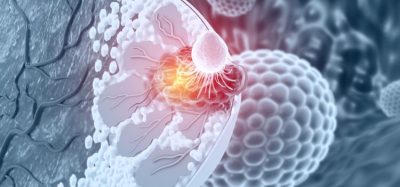First patient receives novel, potentially cancer-stopping pill
City of Hope has developed AOH1996, a promising cancer medicine, for people with reoccurring solid tumours.
City of Hope, one of the largest cancer research and treatment organisations in the US, announced that the first patient to receive novel cancer medicine AOH1996, is doing well.
The Phase I clinical trial is open at City of Hope Los Angeles. Its objective is to determine the maximum tolerated dose of the investigational pill, AOH1996, and to evaluate the medicine for preliminary efficacy.
Eligible patients include adults with solid tumours who have not found standard treatments effective. Participating patients will be asked to take the medication in pill form twice a day.
Dr Linda Malkas, professor in City of Hope’s Department of Molecular Diagnostics & Experimental Therapeutics, has been working on research and the subsequent discovery and development of AOH1996 for 20 years.
AOH1996 is named after Anna Olivia Healey, a young girl born in 1996 who unfortunately was not able to beat cancer. AOH1996 is exclusively licensed by City of Hope to RLL, LLC, a biotechnology company that Malkas co-founded.
The Phase I clinical trial tested the safety of the potential cancer-stopping therapeutic, in people with reoccurring solid tumours. The trial is expected to continue for the next two years. The investigational pill has been effective in preclinical research treating cells derived from a variety of cancers.
Malkas believed that proliferating cell nuclear antigen (PCNA) would be a less toxic cancer therapy that targets mutated cancer cells while leaving normal cells alone. The treatment has been shown in preclinical research to target PCNA and inhibit the growth and spread of human cancer cells.
The research protocol notes that AOH1996 is not toxic to healthy cells and that treatment with this medicine pauses cell DNA synthesis and inhibits DNA repair, leading to a type of cell death known as apoptosis in the cancer cells.
Dr Vincent Chung, a research professor in City of Hope’s Department of Medical Oncology & Therapeutics Research and principal investigator in the clinical trial, added, “By targeting PCNA, we are inhibiting the complex machinery to stop cellular growth and proliferation. This is a new way of trying to kill cancer cells or at least to slow it down.”
“Since many patients’ cancers become resistant to our standard therapies, we need new therapeutics with new mechanisms of action. AOH1996 is just that kind of new therapy,” said Dr Daniel Von Hoff, of the Molecular Medicine Division at the Translational Genomics Research Institute, part of City of Hope, and an advisor on the study.










